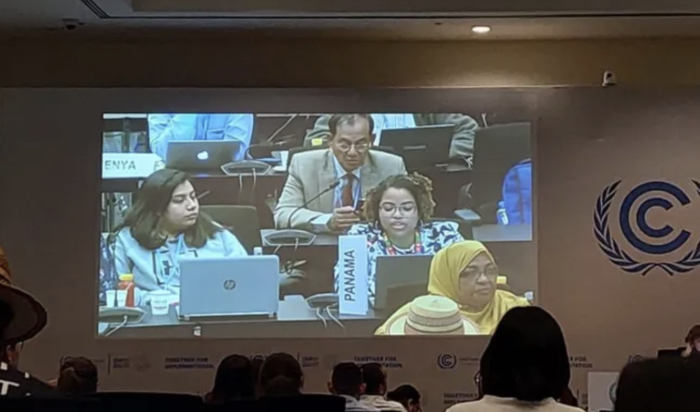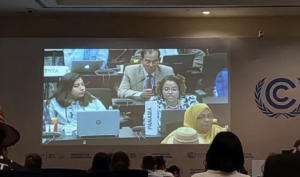Panama, along with the almost 200 countries attending the United Nations Climate Change Conference (COP27), and participating in climate negotiations, resumes in Egypt the international discussions conducted within the framework of the United Nations Framework Convention on Climate Change, under a vision of implementation and operationalization of the Paris Agreement.
It should be noted that Panama also carries out the voice of adaptation coordination, and the co-coordination of ambition of the AILAC (Independent Association of Latin America and the Caribbean) negotiating group, made up of developing countries and highly vulnerable to the effects of climate change, which have ambitious positions of systemic transformation and resilient climate development as a fundamental axis to solve this global problem.
Like neighboring countries, Panama reiterates within these negotiating tables the responsibility of developed countries as the main issuers of the mismatch of the global climate system and the need to increase climate ambition in terms of mitigation and adaptation.
The negotiating team also highlights that Panama’s total contribution of global greenhouse gas emissions is much less than 1%, but that the country is and will be more impacted by these climate imbalances.
The country’s ambition arises from the level of vulnerability and the desire to provide a habitable planet for current and future generations.
Nicole Francisco, climate change analyst, explains that Panama is a carbon-negative country, that is, more carbon dioxide (CO2) emissions are absorbed than we issue and we are committed to remain carbon-negative by 2050 in the second Nationally Determined Contribution update.
In turn, forest cover was increased by 3%, which now represents 68% of the land covered by forests that provide ecosystem services for both our country and the world.
These transformational processes must be managed with transparency, avoiding double accounting and taking into account the large gap that exists in terms of technical information for developing countries, the Panamanian negotiating team highlighted.
On the other hand, it is emphasized that for the first time, after many years, the issue of financing losses and damage was included in the COP agenda; a matter of high relevance for Panama as a vulnerable country, since the losses and damage derived from the adverse effects of climate change have been including those related to extreme weather phenomena, but also those of slow onset, such as the rise in
The vision of the negotiating team focuses on the establishment of a fund as an operating entity of the financial mechanism focused on dealing with the losses and damages that have already occurred.
Under financing lines, Panama has the vision of laying the foundations for the negotiation of the new goal around the transition to 1.5oC, emphasizing the need to accelerate the new long-term financing goal under a transformational and systemic logic that goes far beyond isolated projects or programs worldwide.
Likewise, it emphasizes that Panama, being in the process of cementing the components of the Panama’s National Carbon Market, within the negotiating tables, seeks to have first-hand information so that the country has the conditions that allow the clear execution of the new mechanism.

